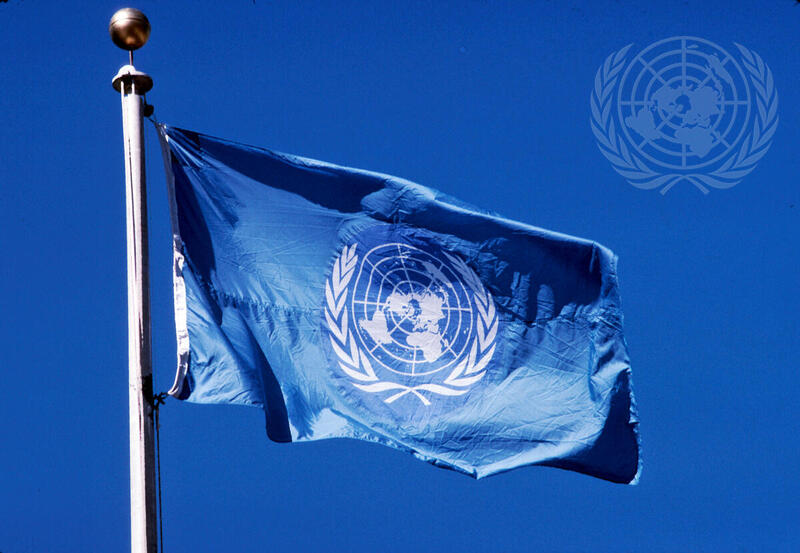UN Stresses Vital Role of Black Sea Shipping for World Food Supplies
The United Nations has underscored the critical importance of maintaining freedom of navigation in the Black Sea, warning that any disruption to civilian shipping could have devastating consequences for global food security. The statement comes amid a fragile pause in hostilities between Russia and Ukraine following recent U.S.-brokered agreements.
Key Points from the UN Statement:
- UN Spokesperson Stéphane Dujarric emphasized that safe passage for civilian vessels is essential to prevent food supply chain disruptions.
- The UN has been actively engaged in negotiations since February 2024, when Secretary-General António Guterres proposed a plan for secure Black Sea navigation.
- The Black Sea Grain Initiative (2022-2023), brokered by the UN and Turkey, previously allowed millions of tons of Ukrainian grain to reach global markets.
- Despite Russia’s withdrawal in 2023, UN officials continue working to facilitate Russian food and fertilizer exports under a separate memorandum.
Background: The Black Sea Grain Deal & Its Collapse

1. The Original Black Sea Initiative (2022-2023)
- Established: July 2022 (with UN/Turkey mediation)
- Purpose: Allowed safe export of Ukrainian grain despite the war.
- Impact:
- 33 million metric tons of grain & foodstuffs exported.
- Helped stabilize global wheat and corn prices.
- Prevented famine risks in Africa, Asia, and the Middle East.
2. Russia’s Withdrawal (July 2023)
- Reason: Moscow claimed Western sanctions still blocked its own food/fertilizer exports.
- Aftermath:
- Ukraine established a temporary “humanitarian corridor” for ships.
- Russia repeatedly threatened civilian vessels, leading to insurance spikes and reduced shipments.
3. Recent U.S.-Brokered “Pause” (March 2025)
- What’s Agreed?
- Temporary halt to Russian strikes on Ukrainian ports.
- Ukraine pauses drone attacks on Russian energy infrastructure.
- But…
- Both sides still exchanging accusations.
- No long-term security guarantees for shipping.
Why Does This Matter for Global Food Security?
1. Ukraine’s Role as a Breadbasket
- Before the war, Ukraine supplied:
- 10% of global wheat exports
- 15% of corn exports
- 50% of sunflower oil exports
- Current Challenges:
- Export volumes down 30% since 2021.
- Farmers struggling with landmines, fuel shortages, and port blockades.
2. Ripple Effects on Vulnerable Nations
- Countries at Risk: Egypt, Lebanon, Yemen, Somalia, Bangladesh.
- UN Warning: Further disruptions could trigger:
- Price spikes (like in 2022, when wheat hit $12 per bushel).
- Increased hunger in conflict zones & poor economies.
3. Russia’s Food & Fertilizer Exports Also in Focus
Read also: “Israel Approves Independence for 13 West Bank Settlements, Sparking International Criticism”
- Despite sanctions, Russia remains a top fertilizer exporter.
- UN official Rebeca Grynspan met Russian officials this week to ease trade barriers.
What’s Next? UN’s Ongoing Mediation Efforts
1. Can the Grain Deal Be Revived?
- UN’s Position: Still pushing for a new agreement but faces hurdles:
- Russia demands sanctions relief on its agricultural sector.
- Ukraine wants security guarantees for its ports.
2. Alternative Routes (And Their Limits)
- “Solidarity Lanes” (EU Rail & Road):
- Slower & costlier than sea shipments.
- Farmers complain of logistical bottlenecks.
- Danube River Exports:
- Now Ukraine’s main export path but vulnerable to Russian drone strikes.
3. The Bigger Picture: A Test for Global Diplomacy
- UN’s Role: Guterres offers “good offices” for peace talks.
- U.S./EU Stance: Balancing military support for Ukraine with food crisis prevention.
- Global South’s Concern: Developing nations need stable food imports above all.
Final Analysis: A Fragile Balance
While the temporary pause is a positive step, the Black Sea remains a flashpoint for:
✔ Global food supplies
✔ Geopolitical tensions
✔ War economics
Key Question: Will major powers broker a lasting solution, or will shipping remain hostage to war dynamics?
















Got a Questions?
Find us on Socials or Contact us and we’ll get back to you as soon as possible.